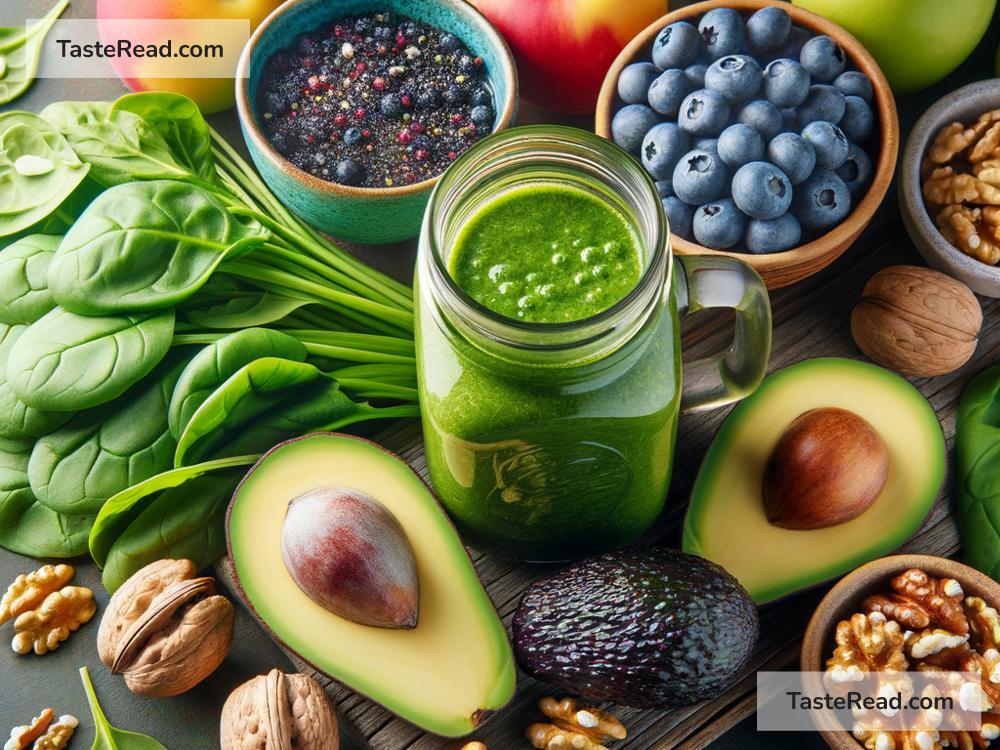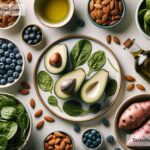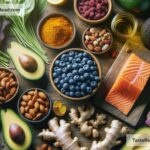Foods That Help Reduce Addictive Behaviors
Addiction can take many forms—alcohol, drugs, sugar, or even technology. While therapy, medication, and support groups are important tools for overcoming addictive behaviors, what we eat can also play a big role. Some foods have nutrients that help calm the brain, reduce cravings, and stabilize mood, making it easier to fight addiction. In today’s article, we’ll explore foods that can support your body and mind in managing addictive behaviors.
How Diet Can Affect Addiction
Addiction involves changes in the brain’s reward system. When you’re addicted to something, your brain gets used to unnatural levels of “feel-good” chemicals like dopamine. Over time, you need more and more of the addictive substance or behavior to feel ‘normal.’
Here’s where food comes in. Certain foods can restore balance in the brain and improve mental health. A healthy diet supports your body’s ability to produce these feel-good chemicals naturally, while unhealthy foods, like sugary snacks or processed junk, can worsen cravings and make recovery harder.
Let’s take a look at the best foods to include in your diet if you’re battling addiction.
1. Protein-Rich Foods
Proteins like fish, chicken, eggs, beans, and tofu are packed with amino acids, the building blocks your brain uses to make neurotransmitters. For example, these foods contain tyrosine, which helps boost dopamine levels naturally. Healthy dopamine levels can reduce the need for external stimulation, like drugs or alcohol.
Make sure to eat protein with every meal to keep your brain happy and cravings under control. For vegetarians or vegans, lentils, chickpeas, and quinoa are excellent options.
2. Complex Carbohydrates
Cravings usually spike when blood sugar levels crash. Instead of reaching for sugary snacks that cause a temporary energy boost (followed by a crash), stick to complex carbohydrates. These include whole grains like brown rice, oats, quinoa, sweet potatoes, and whole-grain bread.
Complex carbohydrates keep your blood sugar stable, which makes you feel more relaxed and less jittery—helpful for managing cravings and withdrawal symptoms.
3. Omega-3 Fatty Acids
Omega-3s are healthy fats that improve brain function and reduce inflammation in the nervous system. They can even help repair damage caused by addiction. Studies have shown that omega-3s may reduce anxiety and depression, which often trigger addictive behaviors.
Foods high in omega-3s include:
- Fatty fish (salmon, mackerel, and sardines)
- Chia seeds
- Walnuts
- Flaxseeds
- Algae-based supplements
Try adding fatty fish to your weekly meal plan or sprinkling seeds and walnuts onto salads and smoothies.
4. Fruits and Vegetables
Fruits and vegetables are full of antioxidants, vitamins, and minerals that support overall brain health and reduce oxidative stress in the body caused by addiction. Brightly colored fruits like berries, oranges, and red peppers are especially high in antioxidants.
Leafy greens such as spinach, kale, and broccoli are packed with magnesium and folate, which help calm your nervous system. Snack on fruits like bananas for a dose of potassium, which supports your physical and emotional energy during recovery.
5. Healthy Fats
Healthy fats, like those found in avocados, olive oil, nuts, and seeds, can improve mood and brain function. These fats help stabilize your energy levels, which reduces irritability and fatigue—common triggers for relapse.
For a quick energy boost, snack on almonds or drizzle olive oil over your salad. Incorporate healthy fats into meals by spreading avocado on toast or adding a handful of walnuts to your oatmeal.
6. Fermented Foods
Gut health plays a major role in mental health, and addiction can negatively impact your gut bacteria. Fermented foods like yogurt, kefir, kimchi, sauerkraut, miso, and kombucha contain probiotics that help rebuild your gut’s balance. A healthy gut produces more serotonin, the “happy hormone,” which helps manage stress and reduces the need for addictive substances.
If you’re new to fermented foods, try a small serving first and add them gradually to your diet.
7. Herbal Teas
Cravings often strike when you’re stressed. Instead of turning to harmful substances for relief, try sipping on herbal teas. Chamomile and lavender help reduce anxiety, while green tea contains L-theanine, which promotes relaxation and focus.
Herbal teas can also satisfy your need for a comforting ritual, similar to smoking or drinking, without the harmful side effects.
Foods to Avoid
While certain foods can help reduce addictive behaviors, others can make them worse. Avoid foods that trigger cravings and mood swings, such as:
- Sugar-laden snacks and drinks
- Processed junk food
- Excess caffeine
- Artificial additives and flavorings
These foods might offer temporary relief but can leave you feeling worse in the long run.
Supporting Recovery Through Food
Changing your diet won’t cure addiction on its own, but it can support your recovery journey. When your body is nourished, your brain works better, your mood stabilizes, and cravings become more manageable. Couple healthy eating with therapy, exercise, and social support for the best results.
If you’re struggling with addictive behaviors, remember to consult a doctor or dietitian to find a nutrition plan that works for you. Every little step matters, and choosing the right foods is a powerful way to take control of your health.
Foods are more than fuel—they’re a tool for healing. By eating foods that support your brain and body, you’ll be giving yourself the best chance to overcome addiction and enjoy a happier, healthier life.


